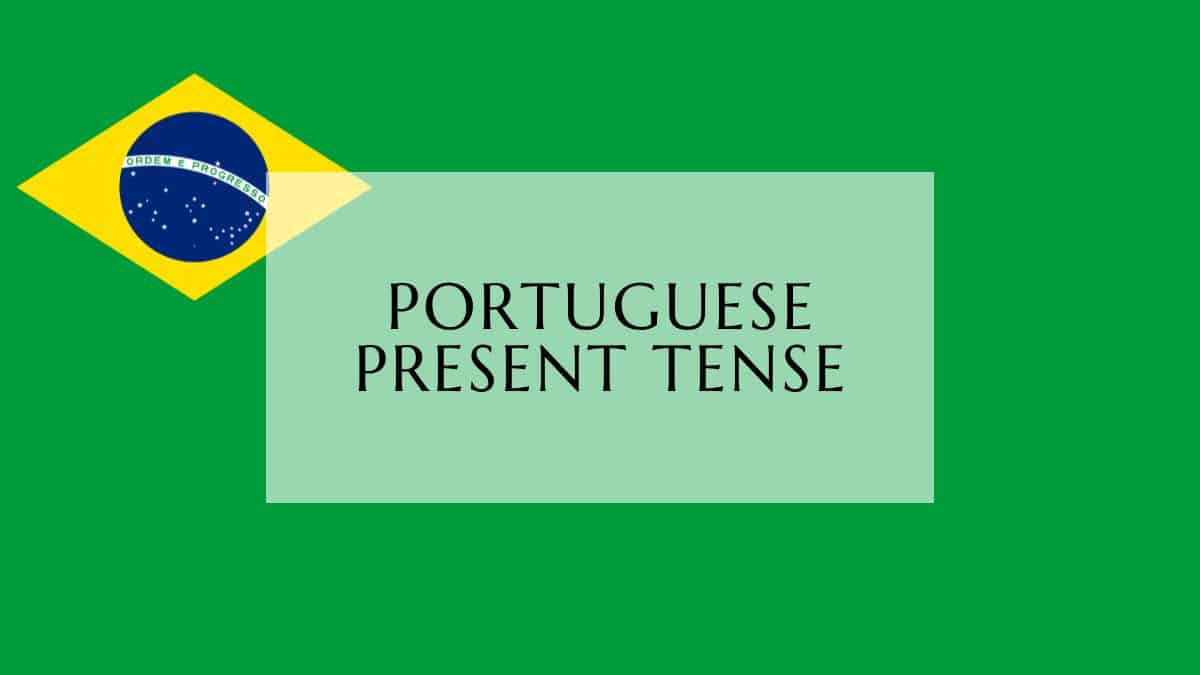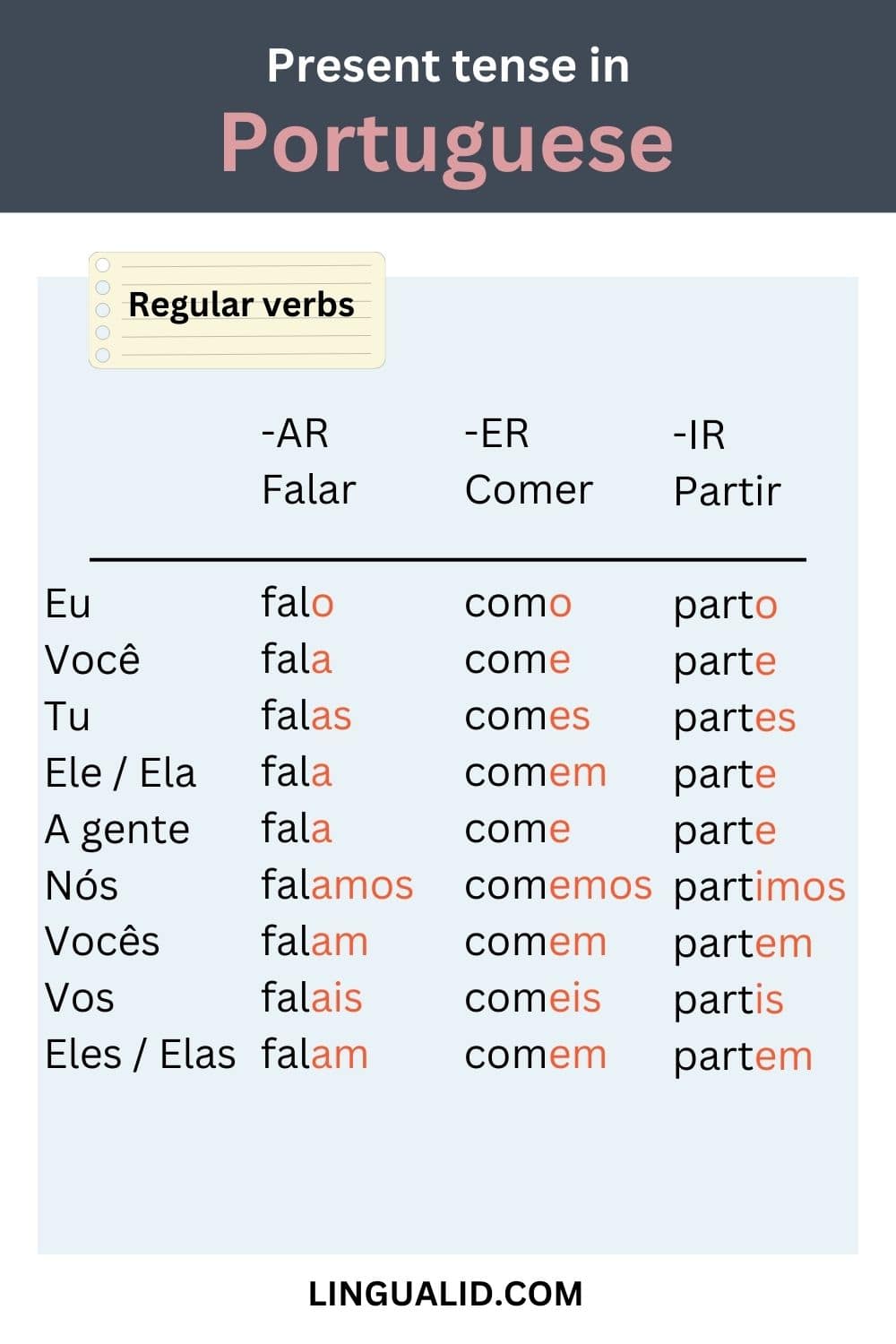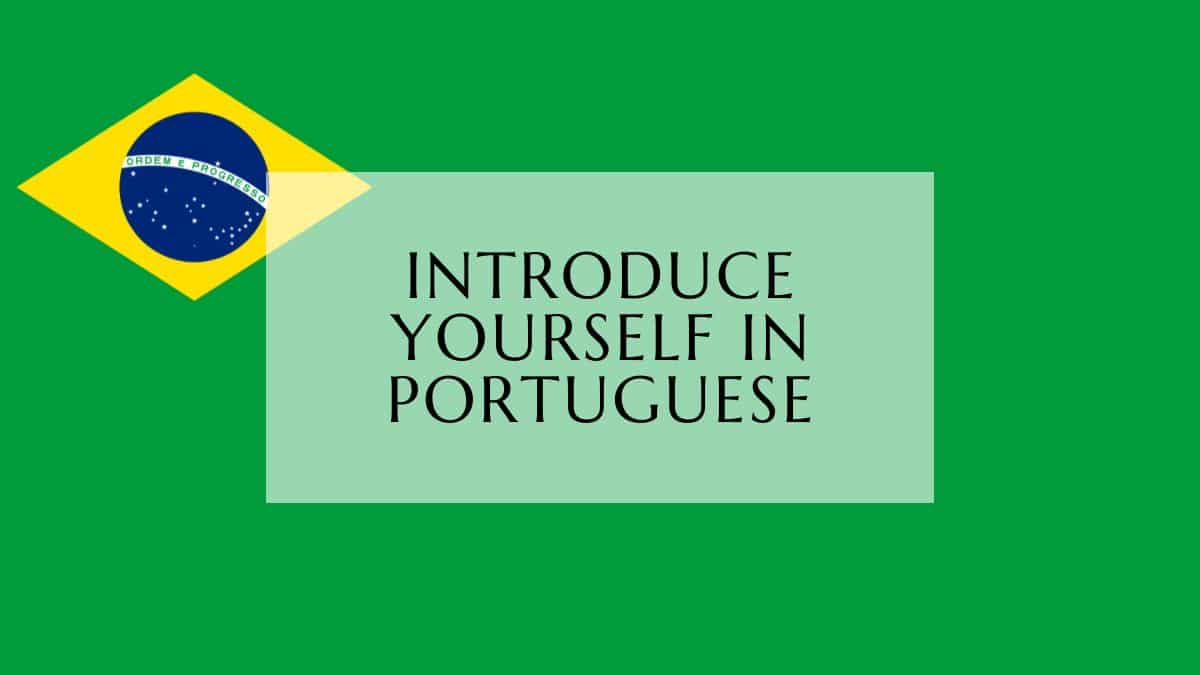The present tense in Portuguese is pretty straightforward as there is a simple form to apply to verbs to get the conjugation right, but bear in mind that there are 3 types of endings in Portuguese verbs: -AR, -ER, and -IR which we will explain and give some examples.

Present Tense In Portuguese
Verbs in Portuguese have three endings: -ar, -er, -ir, for regular verbs, the stem doesn’t change and we conjugate according to their endings, let’s start with verbs that end with -ar.
Verbs that end with -ar
| Eu | -o |
| Você | -a |
| Tu | -as |
| Ele / Ela | -a |
| A gente | -a |
| Nós | -amos |
| Vocês | -am |
| Vos | -ais |
| Eles / Elas | -am |
Example: Estudar (to study):
| Eu | estudo |
| Você | estuda |
| Tu | estudas |
| Ele / Ela | estuda |
| A gente | estuda |
| Nós | estudamos |
| Vocês | estudam |
| Vos | estudais |
| Eles / Elas | estudam |
Example: Falar (to speak)
| Eu | falo |
| Você | fala |
| Tu | falas |
| Ele / Ela | fala |
| A gente | fala |
| Nós | falamos |
| Vocês | falam |
| Vos | falais |
| Eles / Elas | falam |
Note: you can practice what you’ve learned here, and learn how to pronounce each of the words in our Memrise course here, don’t know how to use the platform or sign up? we’ve got you covered in this easy-to-follow tutorial here.
Verbs that end with -er
| Eu | -o |
| Você | -e |
| Tu | -es |
| Ele / Ela | -em |
| A gente | -e |
| Nós | -emos |
| Vocês | -em |
| Vos | -eis |
| Eles / Elas | -em |
Example: aprender (to learn)
| Eu | aprendo |
| Você | aprende |
| Tu | aprendes |
| Ele / Ela | aprendem |
| A gente | aprende |
| Nós | aprendemos |
| Vocês | aprendem |
| Vos | aprendeis |
| Eles / Elas | aprendem |
Example: comer (to eat)
| Eu | como |
| Você | come |
| Tu | comes |
| Ele / Ela | comem |
| A gente | come |
| Nós | comemos |
| Vocês | comem |
| Vos | comeis |
| Eles / Elas | comem |
Verbs that end with -ir
| Eu | -o |
| Você | -e |
| Tu | -es |
| Ele / Ela | -e |
| A gente | -e |
| Nós | -imos |
| Vocês | -em |
| Vos | -is |
| Eles / Elas | -em |
Example: decidir (to decide)
| Eu | decido |
| Você | decide |
| Tu | decides |
| Ele / Ela | decide |
| A gente | decide |
| Nós | decidimos |
| Vocês | decidem |
| Vos | decidis |
| Eles / Elas | decidem |
Example: partir (to leave)
| Eu | parto |
| Você | parte |
| Tu | partes |
| Ele / Ela | parte |
| A gente | parte |
| Nós | partimos |
| Vocês | partem |
| Vos | partis |
| Eles / Elas | partem |

Mastering the Present Tense in Portuguese: A Study Guide
Quiz
Instructions: Answer the following questions in 2-3 sentences.
- What are the three verb endings in Portuguese?
- What is the stem of the verb “falar” (to speak)?
- Conjugate the verb “estudar” (to study) for the pronoun “Nós” (we).
- What is the difference in conjugation between “-er” and “-ir” verbs in the “Ele/Ela” form?
- Conjugate the verb “comer” (to eat) for the pronoun “Vocês” (you plural).
- What is the pronoun used with the verb ending “-mos” in the present tense?
- Conjugate the verb “aprender” (to learn) for the pronoun “Tu” (you informal).
- What is the pronoun used with the verb ending “-o” in the present tense for regular verbs?
- Conjugate the verb “partir” (to leave) for the pronoun “A gente” (we informal).
- Provide one example of a regular verb for each of the three verb endings in Portuguese.
Answer Key
- The three verb endings in Portuguese are “-ar”, “-er”, and “-ir”.
- The stem of the verb “falar” is “fal-“.
- The conjugation of “estudar” for “Nós” is “Nós estudamos”.
- The difference is that “-er” verbs take the ending “-em” (“Ele/Ela comem”), while “-ir” verbs take the ending “-e” (“Ele/Ela parte”).
- The conjugation of “comer” for “Vocês” is “Vocês comem”.
- The pronoun used with the verb ending “-mos” is “Nós” (we).
- The conjugation of “aprender” for “Tu” is “Tu aprendes”.
- The pronoun used with the verb ending “-o” can be “Eu” (I), “Você” (you informal), or “Ele/Ela” (he/she) for regular verbs.
- The conjugation of “partir” for “A gente” is “A gente parte.”
- -AR: falar (to speak) -ER: comer (to eat) -IR: partir (to leave)
Happy learning!
Oualid Cheddadi is the founder of Lingualid, a platform that inspires independent language learners worldwide, regardless of the language they are learning. The name “Lingualid” is derived from the Portuguese word for “language,” “língua,” and the last three letters of Oualid’s name, “Lid.”



